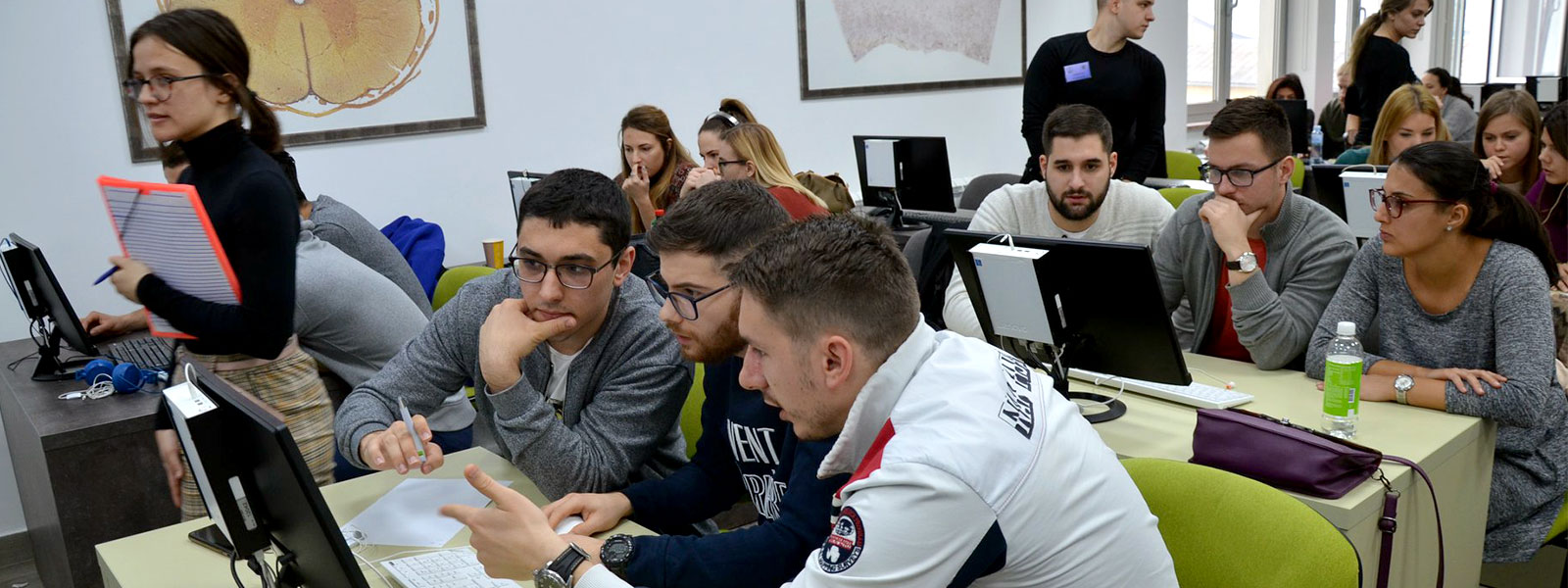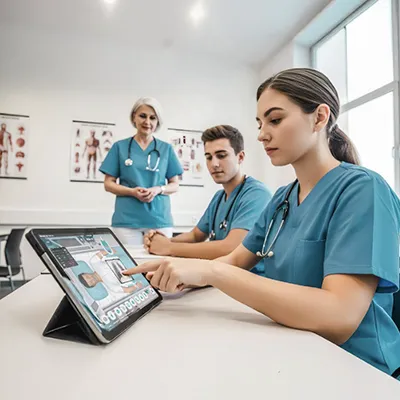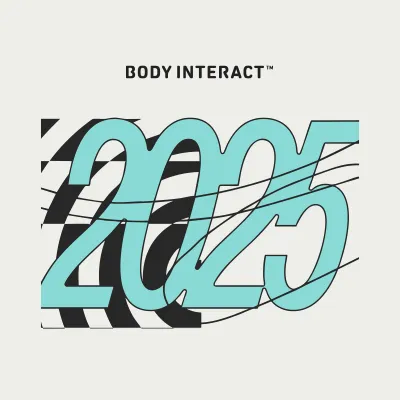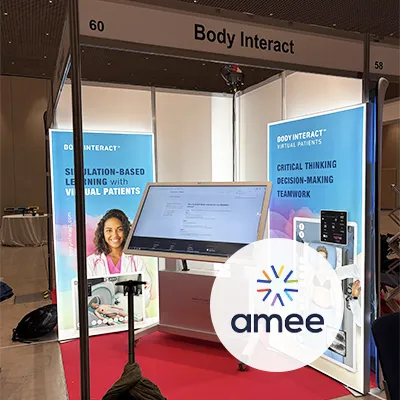December was a very exciting month for us. Competitions have happened, at the same time, in many different countries. From Ukraine to Morocco, passing by Romania, Germany and Serbia, Body Interact challenged students to put their knowledge into practice by using the Virtual Patient Simulator.
Nevertheless, the story we want to share with you today is about the commitment of Jelena Tedosic a Serbian student, member of the European Medical Students Association (EMSA) – Novi Sad, who organized a Virtual Patient Challenge at the Faculty of Medicine from the University of Novi Sad.
Using the organizing committee’s own words, it was thanks to the “combination of challengers’ passion, dedication and collaboration” that it turned out to be “a capturing experience for both the contestants and witnesses”.
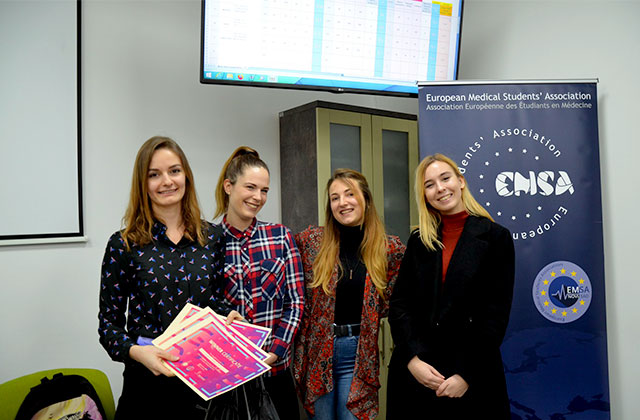
Jelena was the winner of the first workshop at the EMSA Spring Assembly 2019 in Heidelberg. Together with a Portuguese and an Irish colleague, she received a Body Interact license to explore different clinical cases on different specialities and levels of difficulty. Since that day she confessed she couldn’t stop thinking about bringing Body Interact to her university and “how this will be the best experience ever”.


After the spring break she decided to show it to her friends and that was when “trouble” started. She had never solved a clinical case alone anymore. Either at home, either in the school hallways, her colleagues stopped by and together designed the diagnosis and the treatment plan for the patient who just arrived to Body Interact emergency room.
Questions like “When can we come again?” or “Can I play?” convinced Jelena that was time to give it a try and get together a group of volunteers to organize a Body Interact competition. Following this idea, she also decided to take advantage of the opportunity and present it to the school decision makers.

In a competition where 38 students were divided in teams, participants were challenged with three different clinical cases.
After running each case the organization collected the results and let students relax for five minutes before starting a new one. At the same time, the Dean and the Vice-Deans of the faculty helped the teams on the debriefing and analyse how students were reacting to the virtual patient simulator.
More than 85% of the students recognized Body Interact as a useful tool for learning, more than 90% believes it helps improving their clinical reasoning and more than 95% would like to have it at their university. “Stay alive”, the winning team, received a Body Interact license but we can say that all students learnt something, had fun and are willing to have another competition going on soon.
